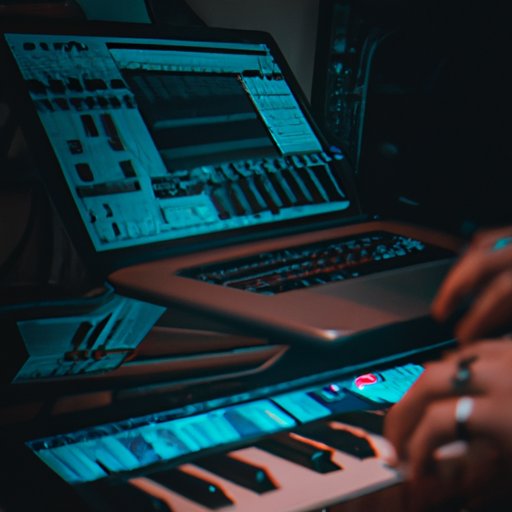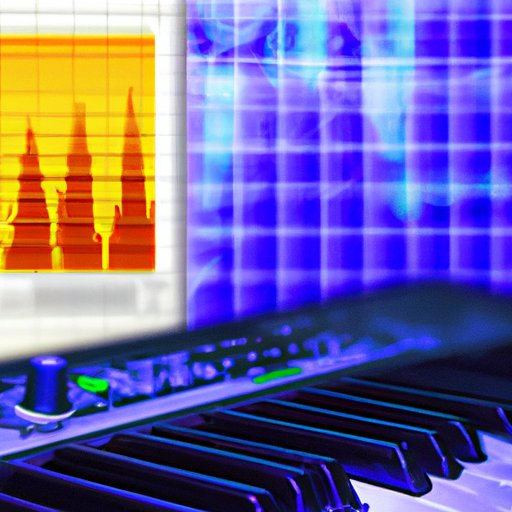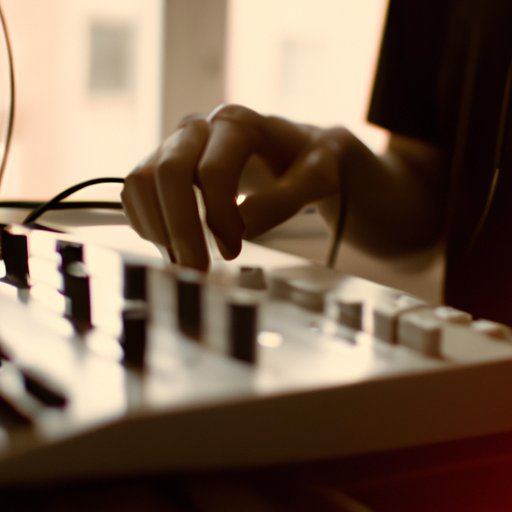Introduction
Digital technology has had a profound effect on music. From the way it is produced, to the way it is shared and experienced, digital technology has changed the landscape of the music industry. In this article, we will explore how digital technology has changed music and its impact on the industry.

Exploring How Digital Technology Has Impacted the Production of Music
Before digital technology, music production was a labor-intensive process that required a lot of time and money. Musicians would have to go into a recording studio and record their tracks on analog equipment, which was expensive and difficult to use. Additionally, it was hard to achieve high-quality sound without investing in expensive equipment.

The Impact of Digital Technology on Music Production
Digital technology has revolutionized the way music is produced. Recording studios are now equipped with digital audio workstations (DAWs) that allow musicians to easily record, edit, and mix their songs. DAWs have made it easier and more affordable for musicians to produce high-quality music from their own homes. Furthermore, with the advent of digital music distribution platforms such as Spotify, Apple Music, and Bandcamp, musicians can now easily share their music with fans around the world.

Examining the Impact of Streaming Services on the Music Industry
Streaming services have had a huge impact on the music industry. Traditional distribution models, such as physical CD sales, have been replaced by streaming services, which offer fans access to an unlimited library of music at a fraction of the cost. This has made it easier for fans to discover new music and for artists to reach a wider audience.
The Benefits of Streaming Services
Streaming services have also had a positive impact on the music industry. According to a report by the Recording Industry Association of America, streaming revenue accounted for 75% of the total U.S. recorded music market in 2020. This has enabled artists to make a living from their music without relying on physical CD sales or live shows. Additionally, streaming services have helped create new opportunities for independent artists who may not have had access to traditional distribution models.
Looking at the New Ways People are Using Technology to Discover and Share Music
Technology has also changed the way people discover and share music. Social media platforms such as YouTube, Instagram, and TikTok have become powerful tools for discovering new music. Fans can explore different genres and find their favorite artists with just a few clicks. Additionally, online music platforms such as SoundCloud and Bandcamp have given independent artists a platform to share their music with the world.
Music apps such as Shazam, Pandora, and Spotify have also made it easier for people to discover new music. These apps use algorithms to recommend music based on a user’s listening history, which makes it easier for fans to find new music they like.

Investigating the Rise of DIY Music Production Through Technology
Technology has also enabled DIY music production. The rise of affordable recording equipment, such as USB microphones and audio interfaces, has made it easier for musicians to record and produce their own music. Additionally, there is a wide range of music software available, such as Pro Tools and Ableton Live, which make it easy for musicians to mix and master their tracks.
Discussing How Virtual Reality is Changing the Way We Experience Music
Virtual reality (VR) is changing the way we experience music. VR technology has opened up new possibilities for live performances, allowing fans to experience concerts from the comfort of their own home. Additionally, VR technology is being used in music videos, giving fans a more immersive experience.
How Virtual Reality Can Enhance the Listening Experience
VR technology is also being used to enhance the listening experience. Companies such as MelodyVR and Wave have developed immersive music experiences that allow fans to explore 3D musical environments while listening to their favorite songs. This gives fans a chance to explore music in a new and exciting way.
Conclusion
Digital technology has had a profound effect on the music industry. From the way music is produced to the way it is shared and experienced, digital technology has changed the landscape of the music industry. From pre-digital music production to the rise of streaming services, social media platforms, music apps, and DIY music production, digital technology has enabled new ways for people to discover and share music. Additionally, virtual reality is changing the way we experience music, offering new and exciting ways to explore and interact with music.
In conclusion, digital technology has revolutionized the music industry, making it easier and more affordable for musicians to produce, share, and experience music. With the continued development of digital technology, the possibilities for the future of music are endless.
(Note: Is this article not meeting your expectations? Do you have knowledge or insights to share? Unlock new opportunities and expand your reach by joining our authors team. Click Registration to join us and share your expertise with our readers.)
